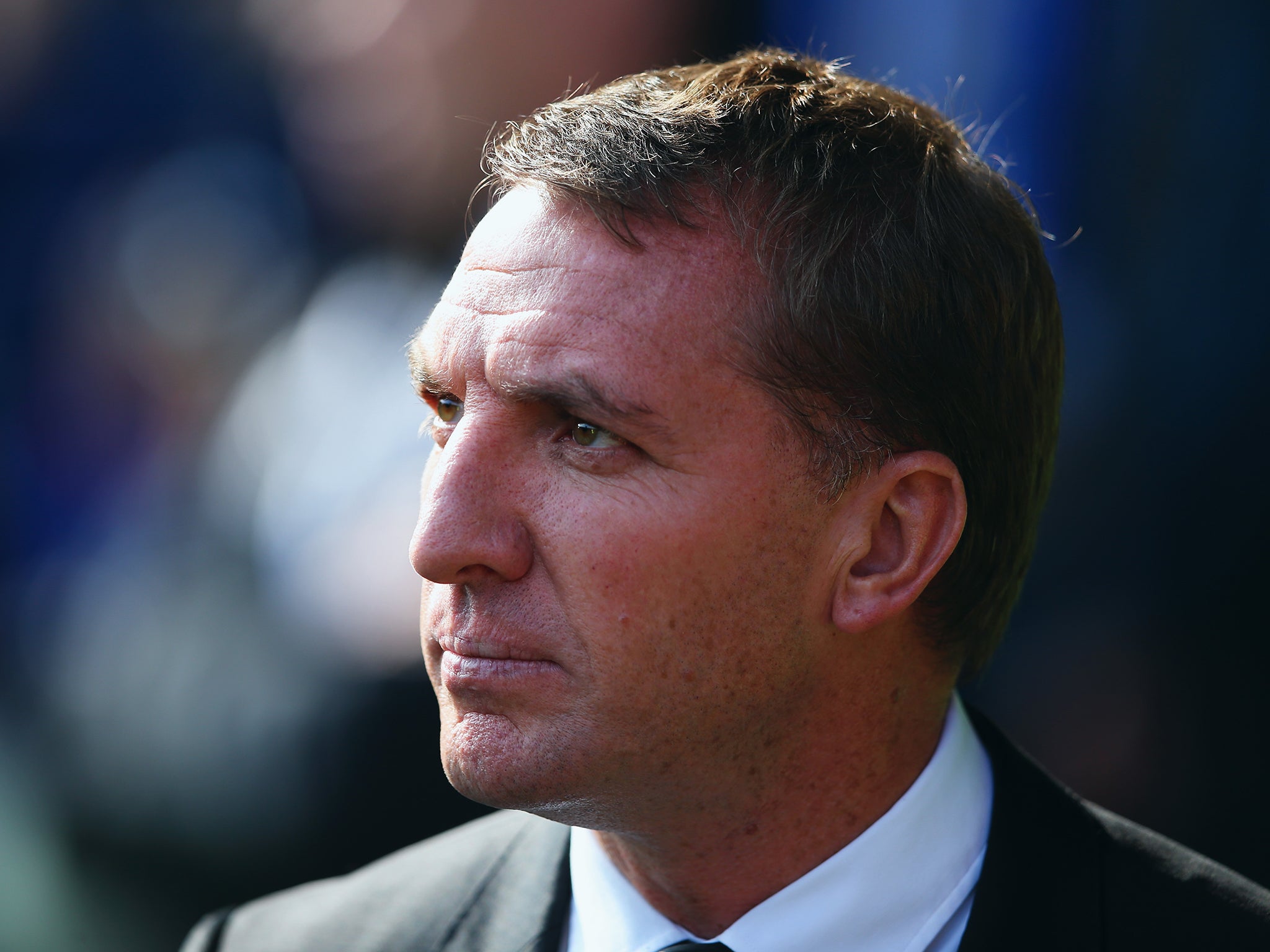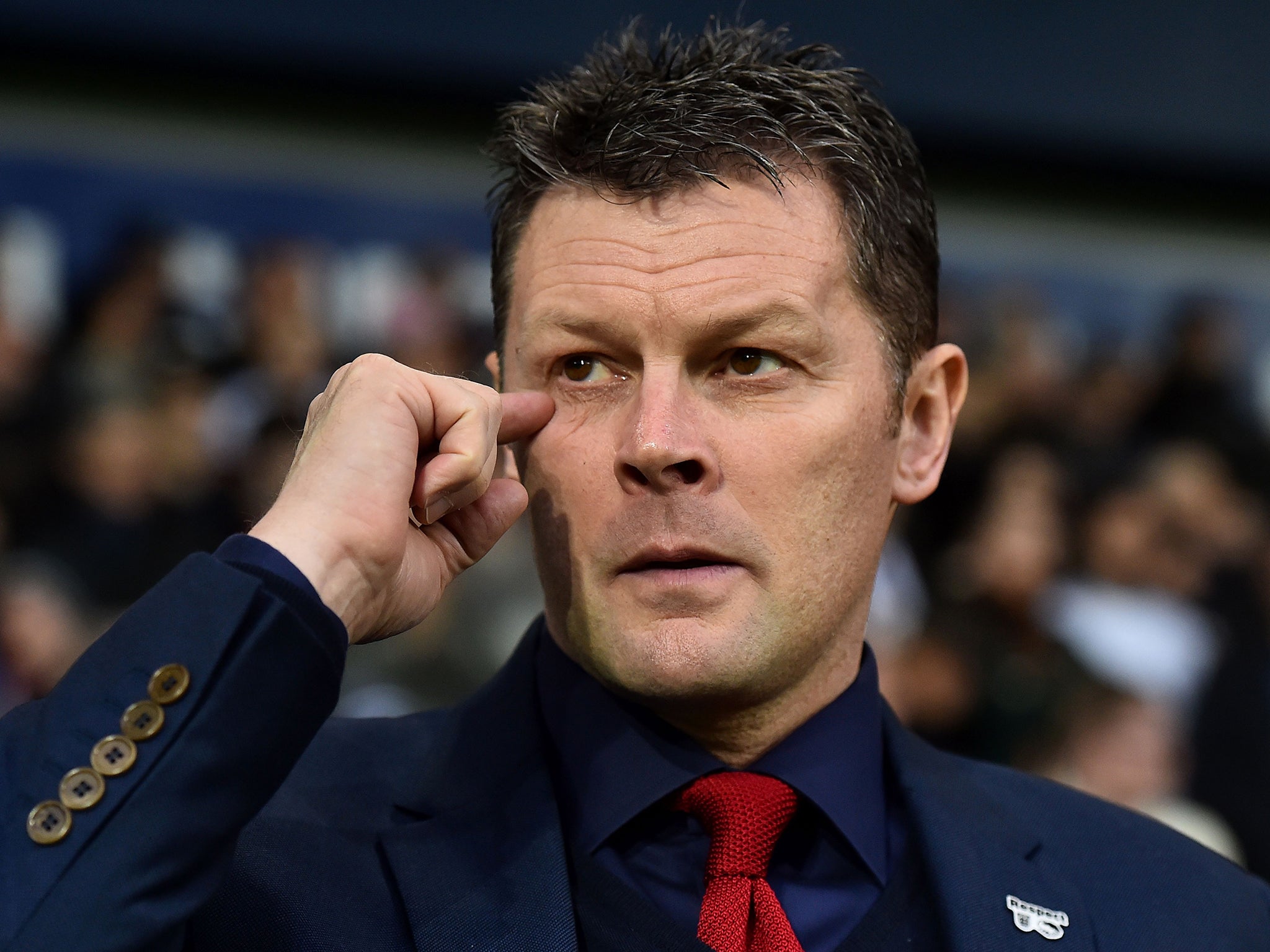Chairmen take note: doing nothing is often a better solution than sacking the manager - Glenn Moore
WEEKEND DOSSIER

Your support helps us to tell the story
From reproductive rights to climate change to Big Tech, The Independent is on the ground when the story is developing. Whether it's investigating the financials of Elon Musk's pro-Trump PAC or producing our latest documentary, 'The A Word', which shines a light on the American women fighting for reproductive rights, we know how important it is to parse out the facts from the messaging.
At such a critical moment in US history, we need reporters on the ground. Your donation allows us to keep sending journalists to speak to both sides of the story.
The Independent is trusted by Americans across the entire political spectrum. And unlike many other quality news outlets, we choose not to lock Americans out of our reporting and analysis with paywalls. We believe quality journalism should be available to everyone, paid for by those who can afford it.
Your support makes all the difference.Three more managers were asked to clear their desks this week, packing away the tactics board, reference books and family photos. Steve Cotterill went nine months on from guiding Bristol City into the Championship, as did David Dunn after barely three months at Oldham and Karel Fraeye following 14 matches at Charlton. That took to 36 the number of managerial changes this season, few of which could be said to be voluntary.
Technically Fraeye was merely “interim” manager, but that is sophistry. They are all interim bosses at The Valley these days, and it is not the only revolving door. Watford, West Bromwich Albion, Sunderland, Queen’s Park Rangers, Leeds United, Fulham, Sheffield United and Notts County are among other clubs rattling through managers at a rate of one a year. Watford, and to an extent West Brom, appear to have made it work but the others are treading water at best.
Five have gone in the Premier League so far – at Chelsea, Liverpool, Aston Villa, Swansea City and Sunderland. Remarkably, none departed with fans calling for their heads: though Brendan Rodgers had doubters, Anfield did not ring to chants of “Rodgers out”, while Chelsea fans were vocal in their support for Jose Mourinho.
Driving these dismissals now is an owner’s fear of the financial consequences of failure, exacerbated by a 24-hour news cycle and social media – at one knee-jerk club the chairman’s wife is a keen follower of messageboards and fan forums despite these rarely reflecting a majority viewpoint.

As Arsène Wenger, talking about fan criticism in France, noted yesterday: “With social networks everybody is allowed opinions and can strengthen their opinion. Before, your opinion was more isolated. Today, straight away, it becomes a stream of people who think the same way and they become a force.”
At the top level replacing the manager is expensive, which is one reason the Premier League is less volatile than other divisions, but it costs at every level. Not only is there a manager to be paid off, and perhaps compensation given to his replacement’s old club, there usually have to be changes in both coaching and playing staff as the new manager brings in his own men. Still, if it keeps a club up, or secures promotion, all this cost and upheaval is worth it. If...
At clubs where management has changed this season, there has been an upturn in results, but not by very much. Across the four divisions clubs that changed managers had taken 36 per cent of the available points at the time. Subsequently, including periods when an interim or caretaker boss was in charge, they have taken 42 per cent. That six per cent rise equates to winning 53 points during a season rather than 50 – one win. This might be enough to keep a club up, or sneak into the play-offs. Or it might just mean coming 13th instead of 14th.
Even this is not proof that firing a manager works. Statistical analyses, notably of the Eredivisie by Dutch economist Dr Bas ter Weel, highlight the phenomenon known as the regression to the mean, loosely translated in football terms as regaining form. It is quite possible that a team suffering a bad run (or, conversely, an unusually good one) would pick up (or decline) without changing the manager. They have reverted to their normal level – possibly, as Dimitri Payet illustrated at West Ham this week, because a key player is fit.
Six matches into this season Stoke City had three points. In League One Peterborough and Doncaster fired their managers at this stage, and they had, respectively, four and six points. Both have improved significantly since – but so have Stoke, and they did not fire Mark Hughes. It is tempting to fire a manager, because then a chairman is doing something; but sometimes not acting is the answer.
In the Championship, Preston took 17 points from their first 17 games, at which point Simon Grayson may have felt nervous, given that a point a game had not been enough to save Uwe Rösler (Leeds) or Chris Powell (Huddersfield), while Chris Ramsey (QPR) and Kit Symons (Fulham) had been axed despite exceeding that mark.
Leeds and Huddersfield improved under new management, but not Fulham or QPR. Preston kept faith. They are now mid-table with 17 points from the next nine games. Wolves’ revival has been even more spectacular, four straight wins easing pressure on Kenny Jackett. Doing nothing can work.
In the top flight Jürgen Klopp may have transformed the mood at Anfield but his results are no better than Rodgers’. Aston Villa have not improved since firing Tim Sherwood, nor Swansea after axing Garry Monk. Guus Hiddink has eased tensions at Stamford Bridge but Chelsea’s midweek draw at home to West Brom showed the team still has problems. The one clear success is at Sunderland, though in this case regime change was enforced, with Dick Advocaat quitting.
Every club is different, but as one out-of-work manager noted this week, wondering whether he wanted to get back in, clubs usually finish where their budget dictates. In most cases an owner’s unrealistic expectations need changing, not the manager.
Points won (%) Before *After
Aston Villa
(Sherwood/Garde) 4/30 (13%) 7/33 (21%)
Chelsea
(Mourinho/Hiddink) 16/48 (33%) 11/15 (73%)
Liverpool
(Rodgers/Klopp) 12/24 (50%) 19/39 (49%)
Sunderland
(Advocaat/Allardyce) 3/24 (13%) 15/39 (38%)
Swansea City
(Monk/Curtis) 14/45 (31%) 5/18 (28%)
*includes matches under caretakers
2015-16 Premier League season only
Join our commenting forum
Join thought-provoking conversations, follow other Independent readers and see their replies
Comments